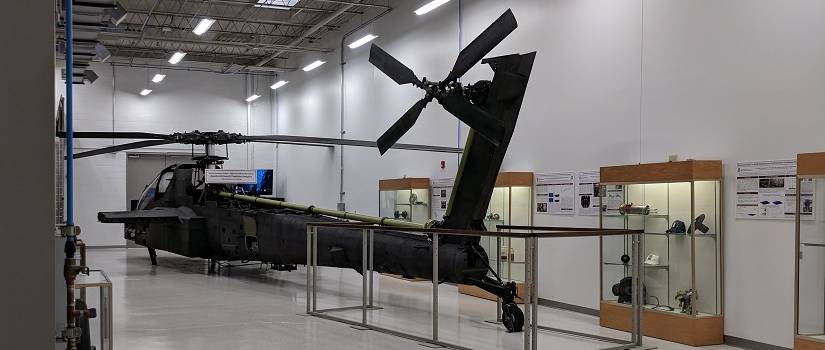Research Leadership
Our research is focused on key areas in advanced composite materials, combustion, digital transformation, predictive maintenance,
and unmanned vehicles and how they can be applied to meet the ever-changing needs of the aerospace industry.
The core research at the McNair Aerospace Center is in the following four areas: Composites,
Combustion, Predictive Maintenance, and Unmanned Vehicles. Collaboration is also done
with many of the centers and labs in the College of Engineering.
Composites
Our research into advanced composite materials doesn't stop with the design of composites
themselves. We also explore the processes needed to manufacture and produce the materials,
examine how the parts can be assembled and search for ways to optimize entire systems.
Predictive Maintenance
The Center for Predictive Maintenance is involved in the area of predictive maintenance
and digital transformation. This interdisciplinary program encapsulates the best practices
of engineering fundamentals:component testing, advanced signal processing, data collection,
processing and analysis, return on investment, statistics, smart sensing, design
techniques, and manufacturing methodologies.
Combustion
Research areas include fuels, energy conversion, and propulsion technologies. Approaches
devleoped are for real fuel combustion dynamics and real fuel combustion chemistry.
Products of this research include rapid fuel property characterization tools and high-fidelity
kinetic and physical models.
Unmanned Vehicles
Research focus is on aerial, ground and marine unmanned vehicles navigation and control.
Design and development of aerial drones, customization with a variety of sensors to
address applications such as inspection, aerial imaging and mapping. The lab has a
fleet of several types of drones and an indoor flying arena is currently under development.
